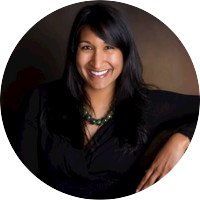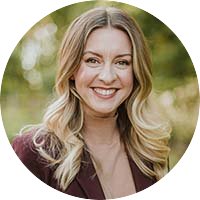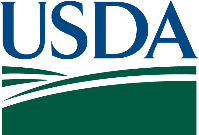
CFANS alumnae take on leadership roles in USDA
In January, the Biden-Harris Administration appointed two CFANS graduates to leadership roles in the United States Department of Agriculture (USDA). Now they are applying what they learned at CFANS to help advance U.S. agriculture, strengthen diversity and inspire tomorrow’s leaders.
Shefali Mehta, PhD

Deputy Under Secretary of Research, Education and Economics and Acting Chief Scientist
Growing up, Shefali Mehta was fascinated by trees and plants, and felt compelled to work with them. As she studied economics and started working in business and nonprofits, she was drawn to agriculture and conservation. At UMN, she earned a master’s degree in Statistics and a PhD in Agricultural and Applied Economics. She ran her own consulting firm before taking on her current role at USDA as a leader of the mission area of Research, Education and Economics (REE). REE is dedicated to creating a safe, sustainable, competitive U.S. food and fiber system by supporting American farmers, ranchers, foresters and U.S. communities across the nation.
Tell us about your role at USDA and what you hope to accomplish.
Having been appointed by the Biden-Harris Administration, I support their key priorities as I serve at the pleasure of the President. These priorities reflect what many people in the country care about right now: climate change, equity and inclusion, local and regional markets, addressing food insecurity and nutrition, and food safety. We are also focusing on making USDA a great place to work. A big part of that is cultivating a diverse workforce. It’s also about amplifying the work of the people at USDA, who are all dedicated public servants. It’s my role to support our team and help remove any barriers in their way.
How did your experiences at CFANS and UMN prepare you for where you are today?
I am so grateful for my experiences at CFANS and UMN because I learned so much during my time there. I’m also grateful to have lived and worked in Minnesota. Minnesota producers serve a global market, but they also provide for local and regional markets, so it’s a wonderful place to study agriculture and understand the interconnectedness of the issues. UMN is also where I learned so much about how to proactively create a diverse and inclusive environment. Just a couple of years ago, I co-chaired a major data conference at UMN hosted by CFANS and IRSA where we hosted a panel discussion about data and equity. It’s not something we talk about enough as scientists, and I appreciate UMN focusing on these critical topics.
What progress has the agriculture industry made in terms of including women in the sector and in leadership roles?
In my current role, the Administration is really clear that they want a diverse staff that looks like the people we serve. I can tell you it wasn’t always like this. Back when I was studying agriculture and conservation, I didn’t see a lot of women or people of color in the field. As we celebrate the progress we have made, we recognize we still have more to do. For REE, having diversity of viewpoints and experiences is what allows us to bring our best in terms of the science. It’s critical for our mission.
What’s your advice for CFANS students who may want to work in government someday?
First I would say follow your passion. It’s often where we find our strengths and skills. It’s equally important to know what you don’t want to do. As much as I love research, early on I realized that academia wasn’t the right path for me. I discovered that I loved working behind the scenes and helping to guide and support others, which is what led me to consulting and ultimately to where I am today. Career paths are rarely linear, and that’s ok! Instead of following a straight path, consider what you will learn from each new opportunity. Finally, I would just say that agriculture needs everyone. It’s one of the few places where every skillset shows up, so there are almost endless ways that CFANS and other UMN alumni can contribute.
Whitney Place

Executive Director, Minnesota Farm Service Agency
Whitney Place fell in love with plants while working in her high school greenhouse. At CFANS, she earned a bachelor’s degree in Applied Plant Science, Agronomy and Agroecology. She went on to earn a master’s in Public Policy from UMN and worked at the Minnesota Department of Agriculture before taking on her current role at USDA, leading the Minnesota Farm Service Agency (FSA). The FSA is the main point of contact for farmers to participate in federal programs authorized by the Farm Bill and other programs authorized by Congress, including conservation, commodity and price support, disaster assistance, and farm credit.
Tell us about your role at USDA and what you hope to accomplish.
As a political appointee, I have limited time in my role. I plan to use the time I have to move the agency forward where I can. Externally, that means doing what I can to extend FSA programs to the next generation of farmers in Minnesota. This includes beginning and emerging farmers that historically have been underrepresented in USDA programs like BIPOC farmers, veterans, women, and LGBTQ farmers. Internally, that means making sure FSA is a great place to work, and that we’re recruiting from a pool of professionals that are public service-minded and have an interest in serving our agricultural communities.
How did your experiences at CFANS and UMN prepare you for where you are today?
CFANS was a critical part of my career path. When I was there, I had the opportunity to not only take the science and agronomy courses, but the curriculum also covered issues around the food system more broadly: hunger, climate change, food system inequities, and more. After I graduated from CFANS I did an internship with the National Farmers Union and decided policy work was what I’d like to do. The Humphrey School has an M.S. in Science Technology and Environmental Policy. It was a good fit for me to study scientific issues from a policy lens and gave me a strong foundation as I embarked on my career.
What progress has the agriculture industry made in terms of including women in the sector and in leadership roles?
Since I started this work about a decade ago, I have seen a noticeable shift in the number of women taking on leadership roles across agricultural sectors. It is important to note that we still have a long way to go for women of color to be included in the same ways. We know that having diverse teams enriches our work by bringing together new perspectives, lived experiences and ideas. It is critical for women to continue pursuing leadership roles from the tractor cab to the board room.
What’s your advice for CFANS students who may want to work in government someday?
In agricultural policy we need really good people working at all levels. If you are public service-minded and want to serve our agricultural community, there is a place for you. At FSA we have career opportunities for those who are most interested in direct interaction with farmers through our farm programs or farm loans. My suggestion would be to start talking to people who have jobs that interest you. CFANS has lots of resources to put students in contact with professionals, including the CFANS Mentor Program. As a mentor myself, I can think of no better way to pay forward the generosity I’ve been given than by encouraging and mentoring students, especially women. So many of the students I’ve met through the CFANS Policy Engagement Program and the CFANS Mentor Program are off doing incredible things in the world, and I genuinely hope to be working for one of them someday.






